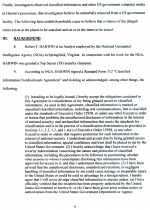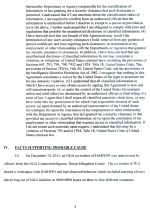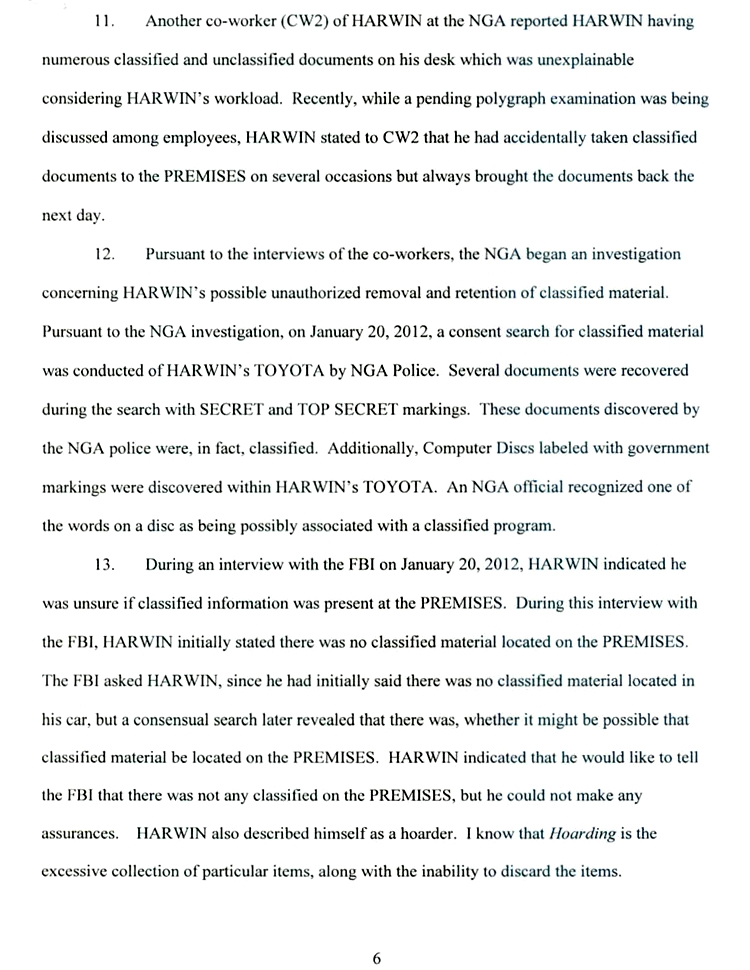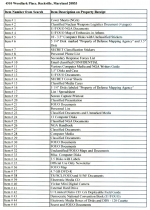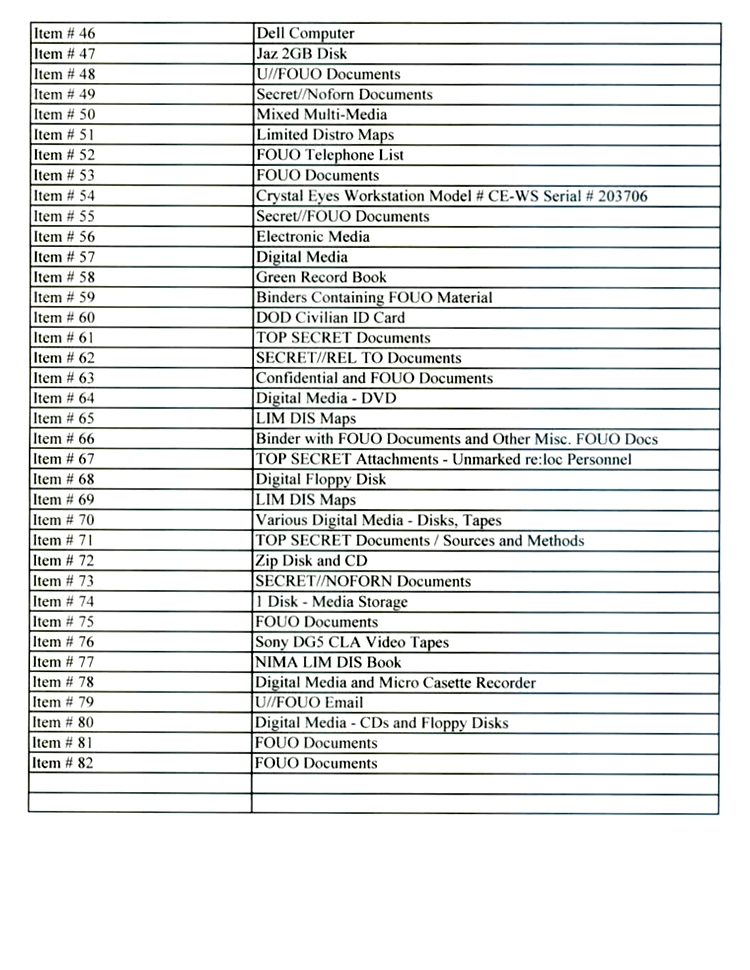FBI Targets "Hoarder" In Top-Secret Thefts
Feds: Analyst took records from government agency

View Document
FEBRUARY 1--A U.S. government employee with a top-secret security clearance is the subject of an FBI investigation into his unauthorized removal of classified material from the Virginia offices of an intelligence agency, The Smoking Gun has learned.
When the target was confronted last month by federal agents, he described himself as a “hoarder.” During a subsequent search of the  man’s Maryland home, investigators recovered a large cache of classified documents and computer disks.
man’s Maryland home, investigators recovered a large cache of classified documents and computer disks.
The criminal probe is focusing on Robert Harwin, an analyst with the National Geospatial-Intelligence Agency (NGA), which creates maps and interprets images from satellites and drones. The agency’s advanced, and highly secret technological capacities allowed it to play a key role in the successful raid on Osama bin Laden’s compound in Pakistan.
FBI agents, who began investigating the 67-year-old Harwin last month, questioned him on January 20 about the discovery of secret and top-secret documents in his 1991 Toyota Corolla. Along with the classified documents, “Computer Discs labeled with government markings” were found inside Harwin’s vehicle.
When asked if other NGA material was stored at his Maryland home, Harwin answered that he was unsure. Then, according to an affidavit sworn by Thomas Shea, an FBI counterintelligence agent, Harwin “described himself as a hoarder.” Shea added, “I know that Hoarding is the excessive collection of particular items, along with the inability to discard items.”
 A coworker told the FBI that they had seen Harwin “carrying a heavy plastic bag out of NGA facilities” in Springfield, Virginia on “three to four different occasions.” Another colleague told agents that Harwin had confided that he had “accidentally taken classified documents” to his home on several occasions, “but always brought the documents back the next day.”
A coworker told the FBI that they had seen Harwin “carrying a heavy plastic bag out of NGA facilities” in Springfield, Virginia on “three to four different occasions.” Another colleague told agents that Harwin had confided that he had “accidentally taken classified documents” to his home on several occasions, “but always brought the documents back the next day.”
Following Harwin’s January 20 interview, FBI agents began a continuous surveillance on him and his residence. On the evening of the 20th, Harwin was “observed moving a bag” from his home “to the backseat of the Toyota.”
Two days later, armed with a search warrant, FBI agents raided Harwin’s home and removed a wide array of secret and top-secret documents and other classified material. While a two-page inventory provides brief descriptions of the records seized by investigators, it is hard to discern how many pages of material were removed from the residence. Additionally, agents removed “NGA Documents” from Harwin’s pickup truck.
Harwin did not return a message left on his home answering machine. Federal prosecutor Harvey Eisenberg, who is overseeing the Harwin probe, did not respond to phone and e-mail messages. Eisenberg is chief of the national security section in the U.S. Attorney’s Office in Baltimore. (6 pages)

